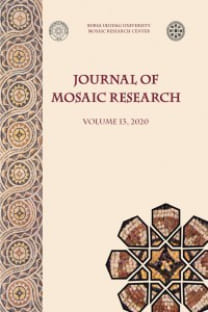Reflets de l’Orient sur les Monuments Épigraphiques de la
The Orient Reflected on the Epigraphic Monuments of Western Roman Lusitania
___
- Alvar Ezquerra 1993 J. Alvar Ezquerra, “Integración social de esclavos y dependientes en la Península Ibérica a través de los cultos mistéricos”, J. Annequin – M. Garrido-Hory (eds.), Religion et Anthropologie de l’Esclavage et des Formes de Dépendance. Besançon, Presses Universitaires de Franche-Comté, 275-293.
- Davies 2000 A. M. Davies, “Greek personal names and linguistic continuity”, S. Hornblower – E. Matthews (eds.), Greek personal names – Their value as evidence. Oxford, British Academy, 15-39.
- Encarnação 2011 J. d’ Encarnação, “Da onomástica grega na Lusitânia romana”, Uma Trajetória na Grécia Antiga, Homenagem à Neyde Theml. Rio de Janeiro, Apicuri, 301-312.
- Encarnação – Faria 2002 J. d’Encarnação – J. C. L. Faria, “O santuário romano e a defixio de Alcácer do Sal”, J. Cardim Ribeiro (coord.), Religiões da Lusitânia – Loquuntur Saxa. Lisboa, Museu Nacional de Arqueologia, 259-263.
- Étienne 1977 R. Étienne, “Remarques sur l’onomastique romaine d’Espagne”, H.-G. Pflaum – N. Duval (eds.), L’Onomastique Latine (Actes du Colloque International sur l’Onomastique Latine organisé à Paris du 13 au 15 Octobre 1975), Paris, CNRS, 291-292.
- IRCP = Encarnação 1984 J. d’ Encarnação, Inscrições Romanas do Conventus Pacensis. Coimbra: Instituto de Arqueologia.
- Parker 2000 R. Parker, “Theophoric names and the history of Greek religion”, S. Hornblower – E. Matthews, Greek personal names – Their value as evidence. Oxford, British Academy, 53-79.
- Pena – Carbonell 2006 M. J. Pena – J. Carbonell, “Un interesante carmen epigraphicum de Pax Iulia (Portugal)”, Revista Portuguesa de Arqueologia 9/2, 259-270.
- Vázquez Hoys 2003 A. M. Vázquez Hoys, Arcana Magica (Diccionario de símbolos y términos mágicos), Madrid, UNED Ediciones.
- ISSN: 1309-047X
- Yayın Aralığı: 1
- Başlangıç: 2008
- Yayıncı: Ululdağ Üniversitesi, Mozaik Araştırlmaları Merkezi
Abelterium: Geometric Mosaics from the Villae of Casa da Medusa and Quinta do Pião
António Manuel de Carvalho LIMA
The Mosaics of the Roman Villa of São Simão, Penela, Portugal
The Mosaic Production of Augusta Emerita (Merida)
Conventus Pacensis Villaları’ndaki Geometrik Motifler
A Roman Mosaic Unearthed in Armazéns Sommer (Lisbon). Archaeology and Iconography
Ricardo Ávila RIBEIRO, Vasco Noronha VIEIRA, Paulo REBELO, Nuno NETO
